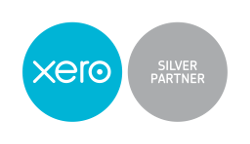On 1 January 2021, new and revised value added tax (VAT) rules were introduced following Brexit. As such, exporters of services from the United Kingdom (UK) to European Union (EU) member states saw some revisions and amendments. If you are a supplier of services to EU member states, the first step you should take is to inform yourself about what these new rules mean for you and your business. This guide takes you through the updated regulations and helps you navigate the world of service provision from the UK to the EU. Let’s take a closer look.
The basics
We’ll start off by covering some basics. It’s essential to know that VAT is charged on most goods and services sold and provided in both the UK and the EU. Regarding services in particular, it is also important to know that the rules related to “place of supply” will determine where you charge and account for VAT.
Supplying services to the EU
As a starting point, businesses that offer services for sale in the EU should be aware that the new rules do not distinguish between EU member states and any other states. Further to this, and as mentioned above, the rules about “place of supply” come in place. As such, what this means in practice is that VAT is charged in the EU member state where the UK business’ customer resides.
Some examples of affected services
To illustrate how this will work in practice, there are several business sectors that are covered under the new rules and you should determine which one your business falls under. For example, if you are a UK business that supplies digital services under the business-to-consumer (B2C) model or to non-business customers in the EU, you should be aware that VAT will be levied in terms of the “place of supply” rule mentioned above.
As such, the £8,818 annual threshold for cross-border sales of digital services to EU consumers is no longer applicable. This also means that you will need to charge VAT at the specific rate where your customer is based and subsequently declare those sales in the relevant EU member state. This means that your services will be outside the scope of UK VAT.
Further exemptions from UK VAT include UK business service suppliers that fall under the “use and enjoyment rules”. Examples of services that are covered by these rules include: the letting on hire of goods (including means of transport); electronically supplied services (B2B only), telecommunications services (B2B only); repairs to goods under an insurance claim (B2B only); and radio and television broadcasting services.
When you need a helping hand
Although there are several other professional service types that are covered by the new rules, and you need to know which one applies to you, you shouldn’t let your VAT returns get the best of you. With your outsourced bookkeeping that offers professional VAT return services and VAT return help, you can always lean on and rely on us at Tax Navigator to help you navigate the complexities and changes that surround the UK’s revised VAT system.
So, if you need expert tax accountants in London, don’t hesitate to reach out to us! Our team of highly knowledgeable experts is on hand to help guide you through the process and ensure you’re always on top of your legal and accounting obligations.



0 Comments